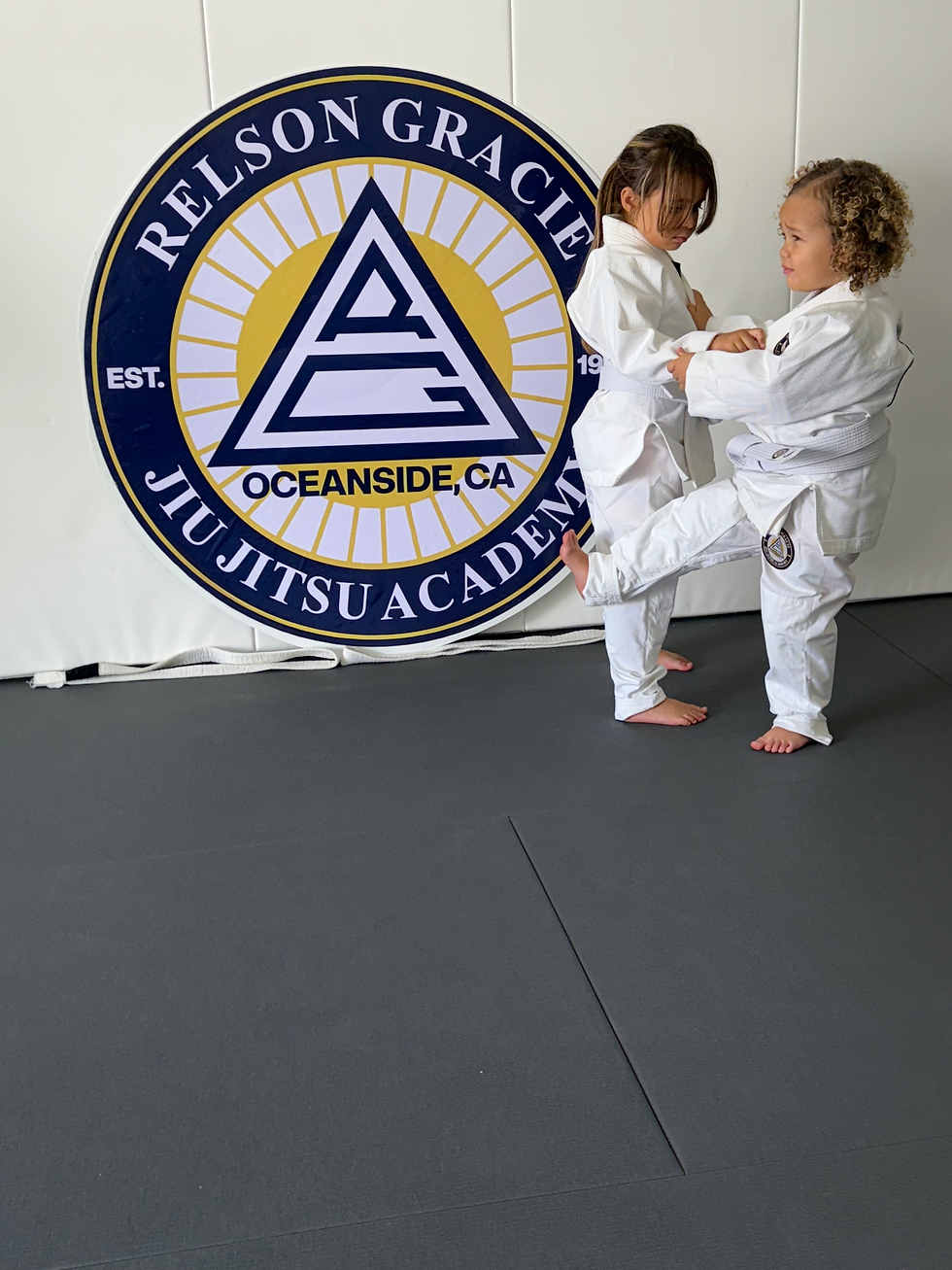Kids Jiu Jitsu Program Building Confidence and Skills
- graciejiujitsuocea
- 7 days ago
- 4 min read
Jiu Jitsu is more than just a martial art. For kids, it offers a unique way to develop confidence, discipline, and practical skills that extend beyond the mat. Many parents look for activities that help their children grow physically and mentally, and a kids Jiu Jitsu program can be an excellent choice. This post explores how such programs build confidence and skills in children, providing practical examples and insights for parents considering this path.

How Jiu Jitsu Builds Confidence in Kids
Confidence is one of the most valuable outcomes of a kids Jiu Jitsu program. Children often start with little knowledge of martial arts, and as they learn new techniques, they gain a sense of achievement. This progress boosts their self-esteem.
Mastering new skills: Learning moves like escapes, holds, and submissions gives children clear goals. Achieving these goals shows them they can overcome challenges.
Positive reinforcement: Instructors encourage kids regularly, praising effort and improvement. This support helps children believe in their abilities.
Safe environment: Kids practice in a controlled, respectful setting where mistakes are part of learning. This reduces fear of failure and encourages trying new things.
Handling competition: Friendly sparring and tournaments teach kids how to face challenges calmly and confidently.
For example, a 7-year-old who struggled with shyness might start to speak up more in class after successfully performing a technique in front of peers. This confidence often spills over into school and social situations.
Physical Skills Developed Through Jiu Jitsu
Jiu Jitsu improves physical fitness and coordination in ways that benefit children’s overall health and development.
Strength and flexibility: Regular practice builds muscle strength and joint flexibility, which supports healthy growth.
Balance and coordination: Techniques require precise movements and body control, improving motor skills.
Endurance: Classes include drills and sparring that increase cardiovascular fitness.
Body awareness: Kids learn how to move efficiently and protect themselves, which helps prevent injuries in daily activities.
A 10-year-old practicing Jiu Jitsu might notice better balance when running or playing other sports. These physical improvements contribute to a more active lifestyle.
Mental and Emotional Benefits of Jiu Jitsu for Kids
Beyond physical skills, Jiu Jitsu teaches important mental and emotional lessons.
Focus and discipline: Learning complex moves requires attention and practice, helping kids develop concentration.
Problem-solving: Jiu Jitsu is often called “human chess” because it involves strategy and quick thinking.
Resilience: Kids learn to handle setbacks, such as losing a match or struggling with a technique, and keep trying.
Respect and humility: The culture of Jiu Jitsu emphasizes respect for instructors, peers, and opponents.
For instance, a child who initially gives up easily might learn to persist through challenges by practicing Jiu Jitsu regularly. This resilience supports success in school and life.
What to Look for in a Kids Jiu Jitsu Program
Choosing the right program is key to ensuring your child benefits fully.
Qualified instructors: Look for teachers with experience working with children and proper martial arts credentials.
Age-appropriate classes: Programs should offer classes tailored to different age groups and skill levels.
Safe training environment: Check that the facility maintains safety standards and promotes a positive atmosphere.
Balanced curriculum: The program should focus on technique, fitness, and character development.
Parental involvement: Some schools encourage parents to observe classes or participate in events, which helps support the child’s progress.
Visiting a local academy and watching a class can give you a good sense of whether it fits your child’s needs.
Tips for Supporting Your Child in Jiu Jitsu
Parents play an important role in helping kids get the most from their Jiu Jitsu experience.
Encourage regular attendance: Consistency helps build skills and confidence.
Celebrate effort, not just wins: Praise your child for trying hard and improving, regardless of competition results.
Ask about their experience: Show interest in what they learn and how they feel about classes.
Promote a healthy mindset: Teach your child that mistakes are part of learning and growth.
Provide proper gear: Ensure your child has comfortable uniforms and protective equipment.
By staying involved and positive, parents help children develop a lifelong love for learning and physical activity.
Real-Life Success Stories
Many kids have transformed through Jiu Jitsu programs. For example, a shy 8-year-old named Mia started Jiu Jitsu to build confidence. After six months, she was leading warm-ups and making friends easily. Another child, Lucas, struggled with coordination but improved dramatically after a year of training, excelling in other sports as well.
These stories show how Jiu Jitsu can change a child’s life by building confidence and skills that last.
Kids Jiu Jitsu programs offer more than martial arts training. They provide a foundation for confidence, physical health, and mental strength. When parents choose the right program and support their children, kids gain valuable tools for success in many areas of life. If you want your child to grow stronger, more focused, and confident, enrolling them in a kids Jiu Jitsu program is a step worth taking.


Comments